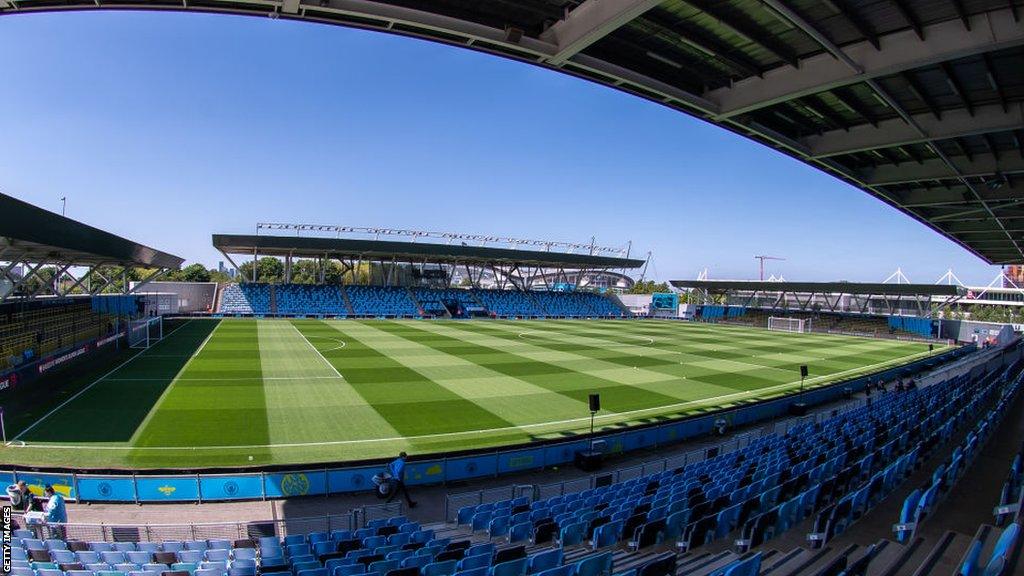Manchester City submit plan for nearly 11,000 solar panels
- Published

The Joie Stadium is part of Manchester City's training complex and is home to their women's and academy teams
Manchester City have submitted plans for a project they believe would make them one of the largest producers of renewable power in world football.
In a first for a Premier League club, the plans would see nearly 11,000 solar panels installed at City's training complex and the Joie Stadium, home to their women's and academy teams.
Their director of sustainability, Pete Bradshaw, said the plans would "completely offset the power required to run the day-to-day operations of the City Football Academy".
He added that City would become "one of football's largest producers of self-supplied, renewable energy".
"We know that the production and consumption of renewable energy has an incredibly important role to play, which is why we are delighted at the prospect of installing over 10,800 solar panels at our home in Manchester."
City would follow Ajax, Galatasaray and Plymouth Argyle in producing their own clean energy, but the number of panels and potential for power generation means the project would be larger than that at Galatasaray's stadium in Istanbul.
The planning permission is expected to be a formality and City are optimistic that the installation would be approved and in place before the end of the year.
City plan to be "net zero" by 2030 and in 2019 were joint top of the inaugural Premier League Sustainability table, published by Sport Positive and BBC Sport. Their latest energy plans build on existing initiatives around water and plastic.
Bradshaw added: "Over many years, we have adopted increasingly sustainable practices across the club, ranging from the removal of all single-use plastic on a matchday to reusing rainwater and recycling more than 70% of our waste."

Our coverage of Manchester City is bigger and better than ever before - here's everything you need to know to make sure you never miss a moment
Listen to the latest We're Not Really Here podcast from BBC Radio Manchester
